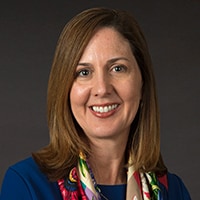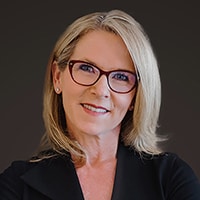Experts from The Northern Trust Institute offer strategies to prepare for the new year.
With the rapid adoption of AI, a fluctuating political and tax landscape, and rapidly evolving values, 2024 promises to be a year of change. In our experience working with families across generations, we have found that those who embrace such changes with a willingness to learn, in tandem with preparing to navigate risks, are often best positioned for success, in the broadest sense of the word.
To help navigate this landscape, we asked our Northern Trust Institute experts a simple question: “What is one thing you would advise our clients to do in order to best position themselves in the new year?” While the answers provide insights on specific strategies across planning, several broad themes emerge: Challenge your assumptions on the meaning of wealth, embrace new definitions of prosperity, and navigate the changing tides of technology and tax law with an open mind.
We hope you find these insights helpful as you prepare for 2024.
Pam Lucina, Chief Fiduciary Officer and President of the Northern Trust Institute

Laura Mandel
Chief Fiduciary Officer, The Northern Trust Company
“With the sunset of the current federal gift tax exclusion at the end of 2025, you may feel pressure to take advantage of this historically high exclusion ($13.61M per person in 2024). But it is critical to first consider the impact of a significant gift on your own financial situation as well as on your family, beyond the tax savings.
“Gifts should be consistent with your long-term financial goals and philosophy on wealth. We encourage you to take the time now to identify the ‘why’ behind your planning and consider different scenarios and the range of possible outcomes. Working with advisors to build flexibility into your plan to adapt to life changes, tax changes and family needs is key, especially when establishing long-term trusts.”

Katie Nixon
Chief Investment Officer
“Focus on risk management. This is where investors often fail, as they lean into behavioral biases that can lead to suboptimal outcomes. Timing the market with precision is incredibly difficult, and 2023 provided yet another example of how unpredictably capital markets behave.
“The best advice is to align your portfolio to your goals. Right-size your portfolio reserve so that it reflects your long-term risk preference and ensures an appropriate duration match, with high grade bonds and cash. Given the uncertain path of inflation, build in an intentional layer of inflation protection. These core principles apply to investors outside of a goals-driven framework as well: Get your risk preference right and stick to your strategy through both calm and stormy market conditions.”

Eric Czepyha
Director of Business Services
“Artificial intelligence has the potential to be the most disruptive technological innovation since the internet. Despite the potential risks of AI, the greater risk for business owners is to do nothing.
“Become an early adopter of AI personally and in your business — start small and experiment with a few pilot projects, such as using AI to help write performance reviews or job descriptions. Emphasize that everyone should give thought to how AI can enhance their role or department. Finally, ‘Do they have experience with AI?’ should be a question that business owners incorporate into hiring decisions, evaluating vendors, acquiring new businesses and building boards. The question is not just about technological expertise, but the ability and willingness to use AI to unlock new ideas.”

Steph Wagner
Director of Women & Wealth
“Biases can permeate nearly every part of our lives. Some are held by us, and some are held about us. These biases are often based on assumptions and stereotypes, like how we define family or retirement, which can interfere with our long-term financial planning.”
“Don’t accept the status quo. Make sure your advisors take the time to understand your unique needs and goals — and have experience to think beyond traditional wealth planning — to create the best solutions for you and your family.”

Jane Ditelberg
Director of Tax Planning
“Many people overlook the impact of state and local taxes. State income, estate and inheritance tax rules change rapidly, and often without the fanfare of federal changes. If you plan to relocate, earn additional income, or purchase property in another state, remember that doing so can impact your tax situation, even if you live in a state that does not currently impose an income or estate tax.
“If you plan to retire to another state, keep that state’s tax rules in mind when you make decisions about accelerating or postponing income recognition through techniques such as deferred compensation and Roth IRA conversions. State and local taxes are also important in determining how trusts should be structured, where they should be created and who the trustee should be.”

Nikè Anani
Director of Next Gen Advisory
“In preparation for the new year, we recommend that families, particularly parents and grandparents of rising generations, prioritize open and honest communication. Have discussions about wealth, values and the family’s financial legacy. These conversations not only help younger generations gain a deeper understanding of their responsibilities, but also ensure that values and goals are aligned.
“Consider involving rising gens in financial discussions, offering them opportunities to learn, grow and actively engage with family wealth. Encourage them to voice their aspirations and concerns, fostering a sense of ownership in managing and preserving the family’s legacy. By creating an environment of transparency and collaboration, families can navigate the complexities of wealth, building foundations for financial education and unity.”

Marguerite Griffin
Director of Philanthropic Advisory Services
“One might not think that charitable organizations would be likely targets of cyberattacks. However, increasingly nonprofit organizations are having to protect themselves from hackers who seek to gain access to their donors’ sensitive data (e.g., personal contact information, birthdays, size of contributions), which are often held on unsecure software systems, Excel spreadsheets or in unencrypted office files.
“In addition to reviewing your charitable giving commitments and expectations for 2024, now is a good time to reach out to your favorite charities and make inquiries regarding how they keep your sensitive data secure, if they have conducted risk assessments to understand cyberattack vulnerabilities, and their commitment to mitigating any risks.”

Amy Szostak
Director of Family Education and Governance
“As we head into a time of accelerated wealth transfer and estate planning, there is a universal question that perplexes multigenerational wealth families across the globe: How can I ensure my wealth will have a positive impact on succeeding generations? While the realization of this goal varies based on the family, the starting point is always the same: Begin by reflecting on what you want your wealth to achieve for your family.
“Begin a dialogue to socialize your goals, get feedback and create buy-in from family members. This simple step can promote productive relationships, build joint decision-making skills and clarify the purpose of your wealth. This process empowers each family member to find their unique voice while contributing to the family’s collective success.“

Stan Treger
Director of Behavioral Insights
“Whether the goal is to get healthier, more informed, or closer to loved ones, the new year marks a time to reflect on aspirations. One challenge when pursuing these goals is defining what it means to succeed.
“To answer this question, people may turn to social comparison. But these comparisons don’t tell us what we think they do. Rather than informing us on whether our self today has improved since yesterday, social comparisons tell us if our self today merely differs from someone else’s self today. As you pursue your goals in the new year, keep your focus on personal growth — rather than comparing yourself today to who someone else is today, compare today’s self with who you were yesterday.”



